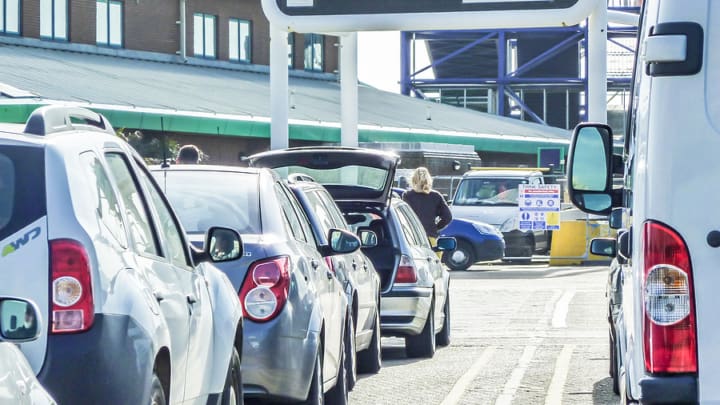
With summer holiday traffic expected to build at Channel ports from this weekend, Logistics UK – as the body representing the industry across the UK – is urging Keir Starmer’s government to prioritise sorting the issues which have yet to be solved about moving goods across the UK’s borders.
In addition, the group is pressing for urgent action to smooth the introduction of the European Entry and Exit System (EES), which will apply to UK nationals entering the EU from Britain from October this year.
Otherwise, as Kevin Green, Logistics UK’s policy director explains, delays at the UK’s borders could be commonplace, not simply an occasional inconvenience at the start of the holiday season:
“We had been discussing how the UK’s borders with Europe are to work effectively with the Conservative government for some time,” he explains, “but important clarifications and decisions have still not been addressed.
“This now means that the issue is a critical one that needs urgent action from the incoming government, not least because the disruption caused by the introduction of Operation Brock to roads in Kent will become the rule, rather than the exception, adding time and cost to journeys to the Channel ports.”
Top of the industry’s concerns is the introduction of the new European Entry and Exit Scheme (EES) which will see all non-EU passengers, both private and commercial, needing to undergo biometric scanning at the UK’s juxtaposed borders at the Short Straits, a critical UK EU supply chain route.
This will result in additional processing time at the border which means longer queues, congestion and delays.
“The strategic road network in Kent is already fragile. If the new European Entry and Exit Scheme (EES) is introduced in October, with no ability to register in advance via an app to take pressure away from the border, then freight and trade will be severely impacted.
“The clock is ticking and there is an urgent need for the new government to accelerate diplomatic engagement with the French government and European Commission to secure a delay and ensure measures are in place to mitigate the impact.
“As traffic increases as a result of summer holidays, some delays to freight movements are inevitable, but our members need and deserve government to take a pragmatic approach and work closely with our European neighbours to iron out the potential problems the new system will cause that our industry has been highlighting since the Brexit vote.”